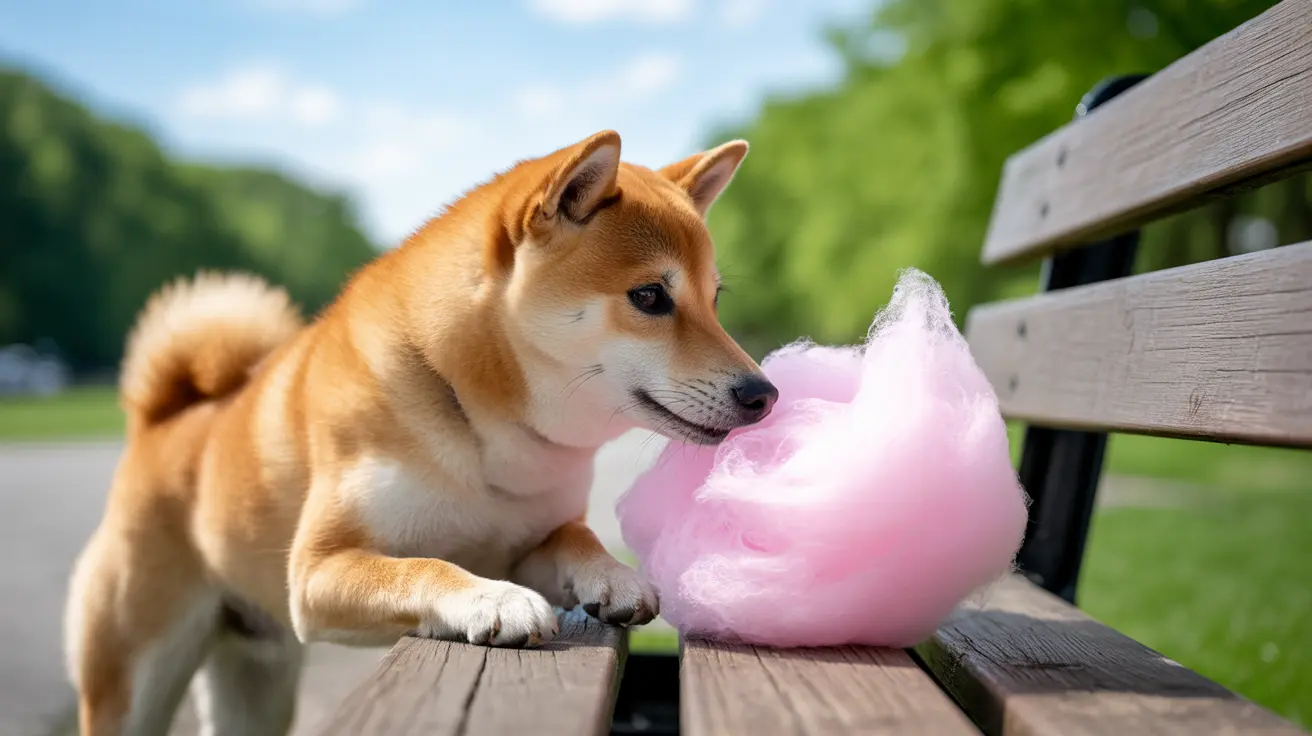Introduction
As pet owners, we often wonder about sharing our favorite treats with our furry friends. When it comes to the question "can dogs have cotton candy," the answer is a clear and emphatic no. This fluffy carnival treat may seem harmless, but it poses several significant health risks to our canine companions. Let's explore why cotton candy is dangerous for dogs and what you should do if your pet accidentally consumes this sugary confection.
Understanding Cotton Candy and Its Risks to Dogs
Cotton candy is essentially pure sugar spun into a fluffy, airy texture, often containing artificial colors and flavors. While this might be a delightful treat for humans, it's particularly hazardous for dogs for several reasons:
Dangerous Ingredients
The primary components of cotton candy can be harmful to dogs:
- Pure refined sugar
- Artificial colorings and flavors
- Potential presence of xylitol (an artificial sweetener highly toxic to dogs)
- No nutritional value whatsoever
Immediate Health Concerns
When dogs consume cotton candy, they may experience several immediate issues:
- Stomach upset and nausea
- Vomiting and diarrhea
- Hyperactivity followed by lethargy
- Potential choking hazards from the sticky texture
Long-term Health Implications
Regular exposure to sugary treats like cotton candy can lead to serious health problems:
Physical Health Issues
- Obesity
- Diabetes
- Dental decay
- Pancreatitis
- Liver problems
Behavioral Changes
- Increased hyperactivity
- Changes in appetite
- Potential addiction to sweet tastes
- Irregular energy levels
Emergency Response: What to Do If Your Dog Eats Cotton Candy
If your dog consumes cotton candy, take these immediate steps:
- Determine the amount consumed
- Check the ingredients for xylitol
- Monitor for unusual symptoms
- Contact your veterinarian if:
- Large quantities were consumed
- The product contained xylitol
- Your dog shows signs of distress
Safe Alternatives for Dogs
Instead of cotton candy, consider these dog-friendly treats:
- Fresh fruits (apples without seeds, blueberries)
- Vegetables (carrots, green beans)
- Commercial dog treats
- Homemade dog treats using safe ingredients
Frequently Asked Questions
Can dogs safely eat cotton candy or is it harmful to them?
No, dogs cannot safely eat cotton candy. It's harmful due to its high sugar content, potential toxic ingredients, and lack of nutritional value.
What health problems can cotton candy cause in dogs if they consume it?
Cotton candy can cause immediate problems like stomach upset, vomiting, and diarrhea, as well as long-term issues including obesity, diabetes, dental problems, and pancreatitis.
What should I do if my dog accidentally eats cotton candy, especially if it contains xylitol?
If your dog eats cotton candy containing xylitol, seek immediate veterinary care. For regular cotton candy, monitor your dog for adverse reactions and contact your vet if symptoms develop.
Why is xylitol in some cotton candy products dangerous for dogs?
Xylitol is extremely toxic to dogs even in small amounts. It can cause rapid blood sugar drops, seizures, liver failure, and potentially death.
What are safe and healthy treat alternatives to cotton candy for dogs?
Safe alternatives include specially made dog treats, fresh fruits like apples and blueberries, vegetables like carrots, and homemade treats using dog-safe ingredients.
Conclusion
While cotton candy might be a beloved human treat, it has no place in a dog's diet. The risks far outweigh any momentary enjoyment your pet might get from this sugary snack. Instead, focus on providing your dog with healthy, appropriate treats that support their wellbeing and longevity. Always consult with your veterinarian about safe treat options for your specific dog's needs and health conditions.






